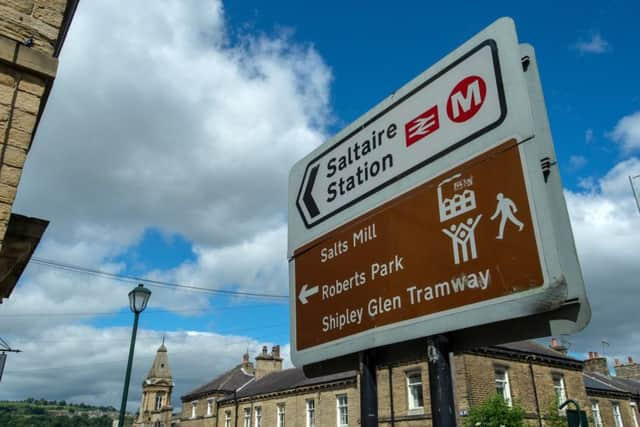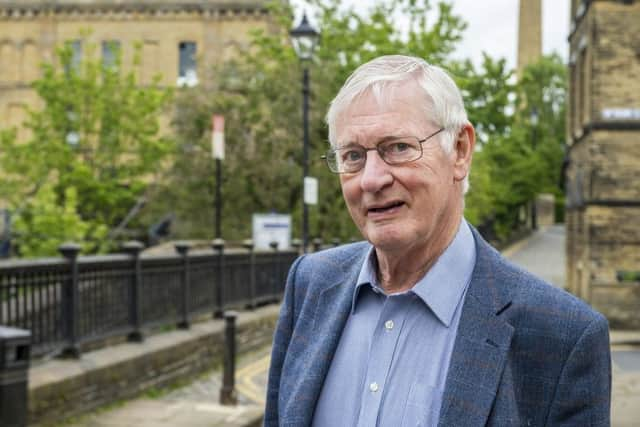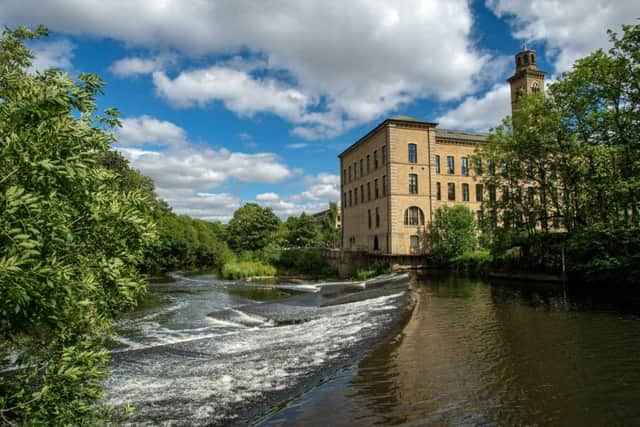Why councils should be obliged to spend their pennies on public toilets in tourist hotspots like Saltaire – William Wallace
Titus Salt was mayor of Bradford and one of a group of Liberals and Congregationalists very much concerned about public improvement in a town which, like others in West Yorkshire, had endemic typhoid and typhus in the 1830s and 1840s, and several cholera epidemics.
He moved his entire works out to Airedale and built a model village with outside toilets and back alleys wide enough to be regularly emptied, which, in those days, was state of the art in public sanitation. So, Saltaire and sanitation are very closely linked together.


Advertisement
Hide AdAdvertisement
Hide AdWe are now a world heritage site and a regular destination for busloads of tourists – either schoolchildren or the moderately elderly – and, as they get off the bus, the first thing they ask is: where are the toilets? The answer is: they are closed.
They were closed last year by the city of Bradford and I do not entirely blame it, given the intense pressure on resources it has faced, but I recall the chief executive of Bradford Council saying to my wife a year ago: “The tourists will have to use the local shops.”


Advertisement
Hide AdAdvertisement
Hide AdOf course, we are heritage-listed, and these 19th-century shops did not originally have indoor toilets and have steps up to the front entrance. Those that have now installed indoor toilets have them either in the basement, down a steep staircase – in our house, the staircase down to the basement is very steep – or on the first floor, so they do not help visitors who may be disabled.
The Non-Domestic Rating (Public Lavatories) Bill’s provisions would have helped by reducing the estimated costs of maintenance and keeping open our local toilets from around £12,000 to around £6,000 or £7,000, but we do not have a local town or parish council at the moment.
We do not have the resources to do it, unlike Bradford’s other two tourist destinations – Haworth and Ilkley – where the cost and burden has been transferred from the metropolitan council down to the local town or parish.


However, we are left with real difficulties. The Minister said in introducing the Bill that this promise was made four years ago and we have been waiting for it ever since. It was put off by the 2017 election, but at least now it is coming through.
Advertisement
Hide AdAdvertisement
Hide AdBut behind this are much wider issues of public policy: the provision of public services and what public services ought to be provided; whether they ought to be provided by local or central government; the future of local government and the provision of public space and public services; and how local government resources will be sustained.
I am very conscious, from other work I have been doing on attacks on the Civil Service and the whole question of the public interest, that there are those on the right of the Conservative Party who are libertarians, free marketeers and followers of Ayn Rand.
I was slightly unnerved the other month when I read that Sajid Javid regards Ayn Rand as the most important philosopher he has read. These are people who believe that government as such is something to be shrunk as far as possible; that private is better than public; and that the individual should be able to do what they want, while those who cannot cope should be left behind.
There are questions behind this measure about the whole system of local taxation, and the balance between charity law and non-charitable activities provided as public services. I note that in both cases, the rating system and charity law go back to the late 16th and early 17th centuries, and still reflect – in some ways – the assumptions of that period. For example, I note that private hospitals are charities and thus have an 80 per cent rate reduction, whereas the NHS pays a substantial amount in non-domestic rates. There is currently a case in the High Court in which NHS trusts could be relieved of some £2.35bn, if they win the case.
Advertisement
Hide AdAdvertisement
Hide AdI am also conscious that public libraries pay substantial rates; for example Cleckheaton library pays £50,000 a year in non-domestic rates. I note that independent schools receive 80 per cent tax relief on this but that state schools pay full non-domestic rates, and that the Scottish Government have committed to removing relief for most independent schools from next year. A set of large issues lie behind this mouse of a Bill which we will want to test, not least against the provision of public toilets in public buildings.
Lord Wallace of Saltaire is a Lib Dem peer who spoke in a House of Lords debate on the Non-Domestic Rating (Public Lavatories) Bill. This is an edited version.